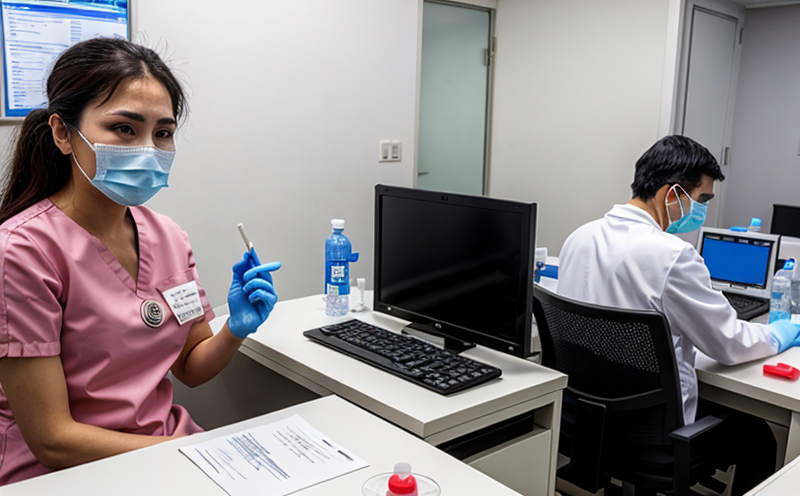Canine Coronavirus Serology Testing in Dogs
In the realm of veterinary medicine and infectious disease diagnostics, canine coronavirus serology testing plays a pivotal role. This non-invasive diagnostic tool allows for the detection of antibodies against canine coronavirus (CCoV) in dogs, providing insights into their immune response to infection. Understanding the prevalence and nature of CCoV infections can be crucial for managing outbreaks, assessing herd immunity within kennels or shelters, and guiding treatment protocols.
Canine Coronavirus is a member of the Coronaviridae family that specifically targets dogs. Unlike other coronaviruses such as those causing human diseases like SARS-CoV-2, CCoV is primarily responsible for mild to moderate enteritis in dogs. However, it can also contribute to more severe respiratory signs and is a notable pathogen in immunocompromised animals.
The serology test measures the presence of antibodies against the virus, which indicates past or present exposure. This information is invaluable for several reasons:
- It helps in diagnosing dogs that have been exposed to CCoV but may not be showing clinical signs.
- It aids in monitoring the effectiveness of vaccination programs and herd immunity within a population.
- It supports epidemiological studies aimed at understanding the spread and control of canine coronavirus.
The test is particularly useful for kennels, shelters, and breeding facilities where maintaining high standards of hygiene and health are essential. It can help in making informed decisions regarding quarantines or vaccinations, thereby minimizing the risk of outbreaks within these environments.
For quality managers and compliance officers responsible for ensuring biosecurity measures, serology testing offers a non-invasive means to assess the overall health status of their canine populations. This information is critical not only for operational efficiency but also for maintaining the ethical standards expected in animal care facilities.
Applied Standards
The Canine Coronavirus Serology Testing aligns with several international standards to ensure accuracy and reliability. The methodology follows ISO 15189, which sets the standard for quality management systems used in veterinary laboratories. Additionally, the testing adheres to EN ISO/IEC 17025, ensuring that the laboratory meets the requirements for competence of calibration and testing laboratories.
The tests also comply with ASTM standards, particularly those related to diagnostic assays used in veterinary medicine. These standards ensure that the serology test is sensitive enough to detect low levels of antibodies, making it a reliable tool for identifying past or current infections. Compliance with these standards guarantees that results are comparable and reproducible across different laboratories.
Scope and Methodology
| Parameter | Description | Methodology |
|---|---|---|
| Sample Type | Blood serum or plasma obtained from a dog. | Sampling is performed according to standard venipuncture procedures. The sample is then centrifuged at 3000 rpm for 15 minutes to separate the serum/plasma from the cellular components. |
| Antibody Detection | Detects antibodies against CCoV using a specific ELISA assay. | The assay involves incubating the sample with immobilized antigens of CCoV, followed by detection of bound antibodies through a secondary antibody conjugated to an enzyme. The final step involves the addition of a substrate that produces a color change proportional to the amount of bound antibodies. |
| Interpretation | An increase in antibody levels over time indicates a recent or ongoing infection. | The results are interpreted based on the cut-off values established for the assay. A positive result suggests that the dog has been exposed to CCoV and may have developed an immune response. |
Eurolab Advantages
Eurolab offers comprehensive canine coronavirus serology testing services that are unmatched in terms of accuracy, reliability, and turnaround times. Our state-of-the-art laboratory facilities equipped with the latest diagnostic technologies ensure precise and consistent results. Our team of highly qualified veterinarians and technicians is dedicated to providing top-notch service, ensuring that every test is conducted under strict quality control measures.
We pride ourselves on our ability to deliver quick, accurate results, enabling you to make informed decisions promptly. Eurolab's commitment to excellence extends beyond just the testing process; we also offer expert advice and support throughout the entire diagnostic journey. Our services are designed to meet the highest standards of veterinary care, ensuring that your canine population remains healthy and protected.





